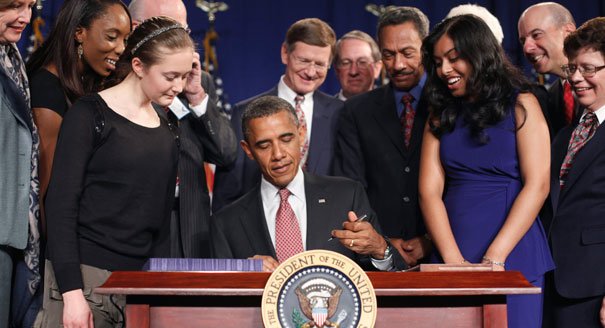
“The ‘private sector’ of the economy is, in fact, the voluntary sector; and the ‘public sector’ is, in fact, the coercive sector.” (Henry Hazlitt, 20th century American journalist and columnist on business/economics)
Hazlitt nailed it.
When you say: “Health care ought to be available for everyone,” what you’re really saying is: “Some people ought to be forced to pay for the medical care of others.”
You might not mean to say this. But it’s still what you’re saying. Not meaning to say or imply it does not alter the fact of what you’re saying.
When you say: “Gas prices ought to be lower,” you’re saying: “Somebody outside of the marketplace — somebody other than customers and suppliers — ought to be setting the terms and cost of the transaction.” In other words: the principle behind Communism. (Heard of that economic system? Soviet Russia? North Korea? Cuba? Really a lot better, isn’t it!)
You might have no idea you’re saying this. You might claim, “That’s too deep. That’s too analytical. All I’m saying is I want my gas to cost less!” But you don’t escape the implications of what you’re saying merely by claiming those implications are not in your mind. Facts exist whether you know — or care to know about them — or not.
When you say: “There ought to be a law against smoking in all public places,” what you’re really saying is: “Owners of bars, restaurants and other establishments have no right to determine what’s best for them. Somebody else should be deciding this for them.” You might not like it worded quite that way. You might insist, “I just don’t like smoking, that’s all. If you’re not a smoker — do you like the smoke?”
You can’t turn your preference for something into a moral and legal entitlement to initiate force against another. You can’t say it’s wrong to enter someone’s private home or business to force another to do something, and then turn around and say it’s OK, so long as your legislator votes it as OK. If you do, then you have to be prepared to let officials in government decide every last thing you do in your own home, or in any other private establishment or place of business you might choose to operate, have or run.
You don’t get to say, “If I don’t like something, it’s automatically wrong, and therefore should be illegal. If I like something, then of course it should be legal — in fact, it should be enforced as a right, or an entitlement.” If you do get to say this, then everyone gets to say this. But you’d never permit that, would you?
When you say: “Everyone should have a living wage,” or, “America deserves a raise!” (referring to the minimum wage law), you might feel good about yourself and enjoy all those likes you get on Facebook from people who admire your supposed moral courage for taking a stand with other people’s lives and money.
But you still have to accept the fact that you’re undeniably implying, “Those who make below a certain amount must be given some of another person’s money. I don’t care how; just somehow. And just so you don’t take it from me.” This isn’t just a cynical or snide observation; it has to be a fact. Because if all you really cared about was someone else having more money, you’d simply and quietly give them your money. You wouldn’t publicly scream (or support those who scream) about the need for “a living wage for all.”
When you promote just about anything our present-day government legislates or authorizes via executive fiat from above, it virtually always depends upon coercing one person to do for another what you, and fifty-one percent or more of the population, considers (for whatever reason) to be a good thing.
That’s not freedom. You’ll call it freedom. You’ll try to claim, “Those people who now have their living wage, their smoke-free restaurant, their guaranteed health coverage, etc. etc., are now free people.” But it came at the cost of somebody else’s freedom. Freedom is supposed to be across the board and equal, not conditional based on whether your preferences fall into the fifty-one percent or higher majority. That’s gangsterism, not freedom. In America, it’s gangsterism masquerading in suits and ties, which is even worse because it’s a lie.
Maybe you think all this conditional coercion is OK and you’re prepared to defend the idea that it’s OK to coerce other people to do things simply because you want them to do so. But you have to defend this as a matter of principle, then.
And you have to be prepared to have someone else be given the equal right to coerce you to do things you don’t wish to do. Good luck with that.
Be sure to “friend” Dr. Hurd on Facebook. Search under “Michael Hurd” (Rehoboth Beach DE). Get up-to-the-minute postings, recommended articles and links, and engage in back-and-forth discussion with Dr. Hurd on topics of interest.
